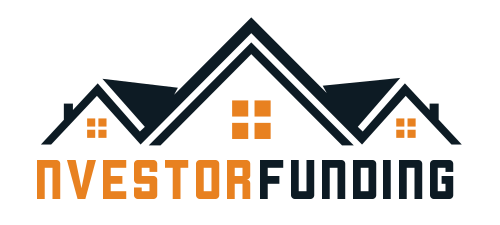What Is A Hard Money Loan?

Hard money loans are short-term, non-conforming loans for commercial or investment properties that are made by individuals or companies that do not require conventional forms of security. Hard money loans are an alternative for businesses that have been turned down for a regular loan or mortgage, or who just don't have the time to wait for the traditional loan approval process.
Hard money loans, like conventional mortgages, are secured loans backed by the value of the underlying property. "Hard" in "hard money" refers to the physical security for the loan. When a borrower fails to repay a secured loan, the lender can seize the collateral and sell it to recoup any losses.
Hard money loans, in contrast to mortgages and other secured loans, are approved swiftly and usually have fewer requirements, making them a good choice when buying something immediately is a priority.
From the time a mortgage is applied for to the time a deal is finalized, more than a month may pass. Loans from hard money lenders can be closed in as little as a few days.
How do Hard Money Loans work?
Let's compare and contrast hard money loans with other common types of loans.
Traditional Loan
Though not a strictly defined category, "traditional" here refers to loans obtained through the typical procedure of applying for a loan, having the lender verify your credit and finances to guarantee you can repay the loan, and then be authorized for the loan if everything checks out.
Mortgages, automobiles, personal loans, and home equity loans are just a few of the many subsets of loans that fall under this category. Private lenders may be an option because they may not impose as many restrictions on the loan, but the higher risk also means that the interest rates and terms are less favorable for borrowers.
A borrower's income, debts to other lenders, credit history, assets (including cash on hand), and down payment size will all be major factors considered by traditional lenders.
This elaborate procedure is put in place by these lenders to reduce the danger they face when making loans. Lenders are able to provide more competitive rates and terms by verifying the creditworthiness of their borrowers.
Traditional loan options abound, even if you worry you won't be able to qualify.
How to get a Hard Money Loan
A hard money lender will base their decision to lend on the value of the property being acquired.
In comparison to a conventional loan, the lender will likely undertake significantly less due diligence while considering your application for a loan. Borrowers can expect their funds in a matter of days rather than weeks or months thanks to this streamlined process.
The lender assumes a greater degree of risk, which ultimately results in a higher interest rate for the borrower. Hard money loans are known for their high-interest rates and often substantial down payments from borrowers.
Similarly, the terms of hard money loans are typically quite brief, lasting at most a few years. This is in contrast to the standard mortgage terms of 15 or 30 years.
What are Hard Money Loans used for?
Here are some of the most prevalent reasons why people seek hard money loans rather than standard loans.
House Flipping
Hard money loans can be used by real estate investors who make money by purchasing low-cost properties in need of repair, making value-adding repairs and renovations, and then flipping the homes for a profit.
Professional flippers frequently prefer faster kinds of funding because these ventures typically materialize pretty rapidly. Furthermore, because house flippers frequently aim to sell the home in a short period of time - typically less than a year - they do not require the lengthy loan term that a standard mortgage would provide.
Buying an Investment Property
Those who want to invest in rental property but do not qualify for standard financing may consider obtaining a hard money loan to fund their purchase.
This strategy can be handy if you are unable to obtain a standard loan due to poor credit history or if you require more money than a traditional lender will allow you to borrow.
Purchasing Commercial Real Estate
Similarly, if a business owner is unable to acquire standard financing, he or she may use a hard money loan to cover the purchase of commercial real estate. Hard money loans might be beneficial for entrepreneurs looking to purchase a one-of-a-kind property that does not qualify for traditional finance. The same might be said for those who find typical business loan restrictions inadequate for their requirements.
What it's like working with a Hard Money Lender
Typically, hard money lenders are individual investors or firms that specialize in this form of lending. Hard money loan choices are not available at your neighborhood bank. The rules that apply to conventional, conforming loan lenders do not apply to hard money lenders. As a result, hard money lenders are often permitted to set their own requirements for their clients' credit ratings or debt-to-income ratios.
Even if more conventional lenders have turned you down, you might be able to find a hard money lender who would approve you for a loan. Hard money lenders prioritize the value of the property being acquired over the borrower's creditworthiness.
What type of rates can you expect from a Hard Money Loan?
As previously stated, hard money loans are costly. How pricey is it? Let's compare the interest rates on these loans to those of more conventional sorts of loans.
According to Freddie Mac, the average rate for a standard 30-year fixed-rate mortgage in May 2022 was 5.09%. The interest rates on hard money loans are frequently 8 to 15%.
The lender's preferred loan-to-value (LTV) ratio may also increase the cost of hard money loans. If a lender will only finance 70 to 80 percent (or less) of the property's worth, you will likely be required to make a substantial down payment. If you lack the necessary funds, it may be difficult to find a hard money lender who will work with you.
Pros and Cons of using Hard Money
You should weigh the benefits and drawbacks of a hard money loan carefully if you're considering applying for one.
Pros of Hard Money Loans
If you're considering getting a hard money loan, make sure you understand all of the benefits and drawbacks of this type of loan.
As previously stated, the benefits of using a hard money loan include:
- A quicker approval procedure
- Approval based on the property rather than credit history
- More flexibility
- Less stringent underwriting
- The ability to fix and flip homes
Hard Money Loan Cons
The following are some of the disadvantages of hard money loans:
- High-interest rates
- Large down payments are frequently required
- Shorter terms mean less time to repay
- Riskier than regular finance
- A track record of successful house flips may be required
Why do Real Estate Investors Use Hard Money Loans?
Speed & Convenience - The Dodd-Frank Act's new mortgage lending restrictions have made the mortgage application process lengthy and inconvenient. Investors run the risk of losing out on a particular investment property because the loan closing process can take months. Rapid finance is available in as little as a few weeks when you go with a hard money loan. That's vital if you're footing the bill for a massive construction project and can't afford any delays.
Flexible Underwriting - Due to the fact that hard money loans are provided by private lenders, investors have greater room to negotiate loan terms. During the underwriting process, you may be able to adjust the repayment schedule to your needs or have some fees, such as the origination fee, decreased or eliminated.
Collateral - The collateral for a hard money loan is typically the property itself. Nonetheless, creditors may give investors some leeway in this respect. For instance, with certain loan providers, you may put up collateral in the form of a retirement account or a home you own as security for the loan.
Conclusion
Hard money loans are ideal for individuals who need funds for an investment property quickly and without the bureaucracy associated with bank borrowing. Pay particular attention to fees, interest rates, and loan terms when comparing hard money lenders. If you spend too much for a hard money loan or shorten the payback period, this can affect the long-term profitability of your real estate enterprise.
If you are in need of a Hard Money Loan feel free to reach out to us via phone at 877-231-3111 or feel out an inquiry here.


.png)